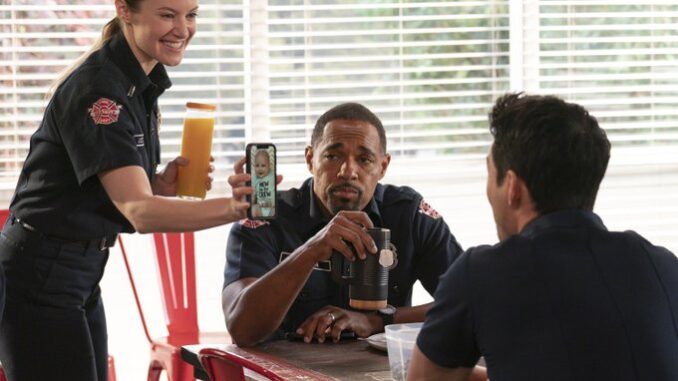
The Lingua Franca of Love: How Station 19 Fans Decode a Subtle Maya and Carina Moment
Television, in its best form, is a masterclass in intimacy. It invites us into fictional lives, builds worlds around characters, and, for its most devoted viewers, fosters a relationship built on shared understanding, a quiet conspiracy between creator and audience. Nowhere is this more apparent than in the meticulous parsing of seemingly minor details by a passionate fandom, eager to unearth the deeper truths simmering beneath the surface. For the dedicated viewers of Station 19, the latest episode offered just such a treasure: a subtle Maya and Carina moment that, for the casual observer, might have been a mere flicker, but for the "Marina" faithful, spoke volumes.
Maya Bishop and Carina DeLuca, known affectionately as "Marina" by their legion of fans, have cultivated one of Station 19's most compelling and complex relationships. Their journey has been fraught with challenges – Maya’s struggle with perfectionism and emotional vulnerability, Carina’s unwavering empathy and patience, and the external pressures of their demanding, often traumatic, professions. Their love story isn’t one built solely on dramatic declarations or sweeping gestures; often, its most profound expressions are found in the quiet, unguarded spaces between the lines of dialogue, in the shared glances, the knowing touches, the silent affirmations of presence.
The moment in question was not a major plot point, nor was it highlighted with swelling music or dramatic camera work. It unfolded amidst the controlled chaos of the firehouse bay, after a particularly grueling shift. The air was still thick with the residue of adrenaline and exhaustion, the clanking of equipment a constant backdrop to hushed conversations and weary sighs. Maya, typically a fortress of composure, was methodically unstrapping her gear, her movements precise, almost mechanical, a tell-tale sign of her internal processing. Her face, usually a mask of professional stoicism, carried a faint shadow of the recent crisis, a fleeting vulnerability that only a select few would ever truly perceive.
Carina, ever perceptive, approached her. It wasn't a grand entrance, no urgent call, no dramatic dash. She simply appeared beside Maya, her presence a soft anchor in the swirling aftermath. Her gaze, a soft anchor in the turbulent wake of the call, settled on Maya's profile. There was no need for words. Maya didn’t even fully turn. Instead, as Carina’s hand, almost instinctively, reached out and briefly, gently, brushed the back of Maya’s arm – a mere whisper of a touch – a subtle shift occurred. Maya’s shoulders, rigid moments before, seemed to relax by a fraction of an inch. Her jaw, previously clenched, softened ever so slightly. It wasn’t a prolonged stare, not a verbal exchange, but a micro-expression, a flicker, a ghost of a smile that played around Maya’s lips for barely a second before she regained her composure, her eyes still fixed on the task at hand. The contact lasted less than two seconds, easily missed in the wider shot of the bustling firehouse.
For the casual viewer, it might have been a blink-and-you-miss-it detail, an insignificant gesture born of familiarity. But for the devoted “Marina” faithful, it was a seismic event, an entire conversation encapsulated in that brief, almost imperceptible exchange. They rewind the scene, slow it down, scrutinize every frame. They note the way Carina’s eyes held a mixture of concern and quiet understanding, acknowledging the invisible weight Maya carried. They decipher Maya’s almost imperceptible relaxation, understanding it as a rare moment of unguarded trust, a testament to Carina’s unique ability to penetrate Maya’s carefully constructed walls. It was a silent question – "Are you okay? I see you." – and a silent answer – "I am, now that you're here. Thank you." – a testament to the deep, intuitive bond forged through shared experiences and an enduring, unconditional love.
Such details are not merely fan service; they are character-deepening embers that illuminate the unspoken truths of a relationship. They speak to the authenticity the writers strive for, recognizing that real love often thrives in the quiet affirmations, the subtle acts of support, the shared language that exists only between two people. These moments resonate because they are earned, built upon seasons of development, conflict, and reconciliation. They remind us that true intimacy isn't always loud or demonstrative; sometimes, it’s found in the knowing glance across a crowded room, the reassuring brush of hands, the silent understanding that transcends words. In a world often loud with conflict and grand statements, Station 19 reminds us of the profound power nestled within the quietest gestures, and how a truly invested audience will always be there, watching, waiting, and celebrating every subtle whisper of connection.